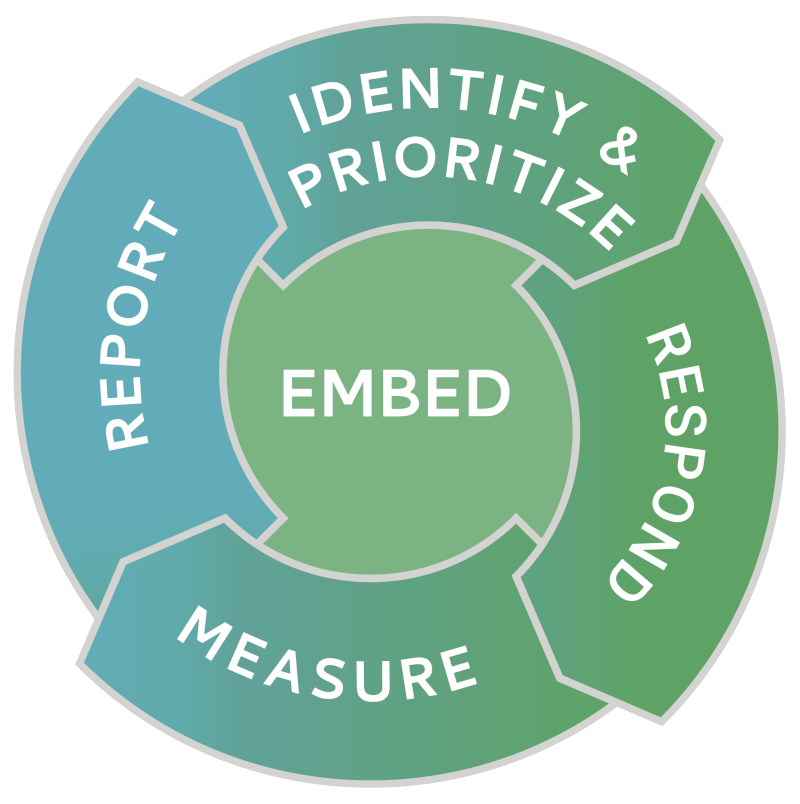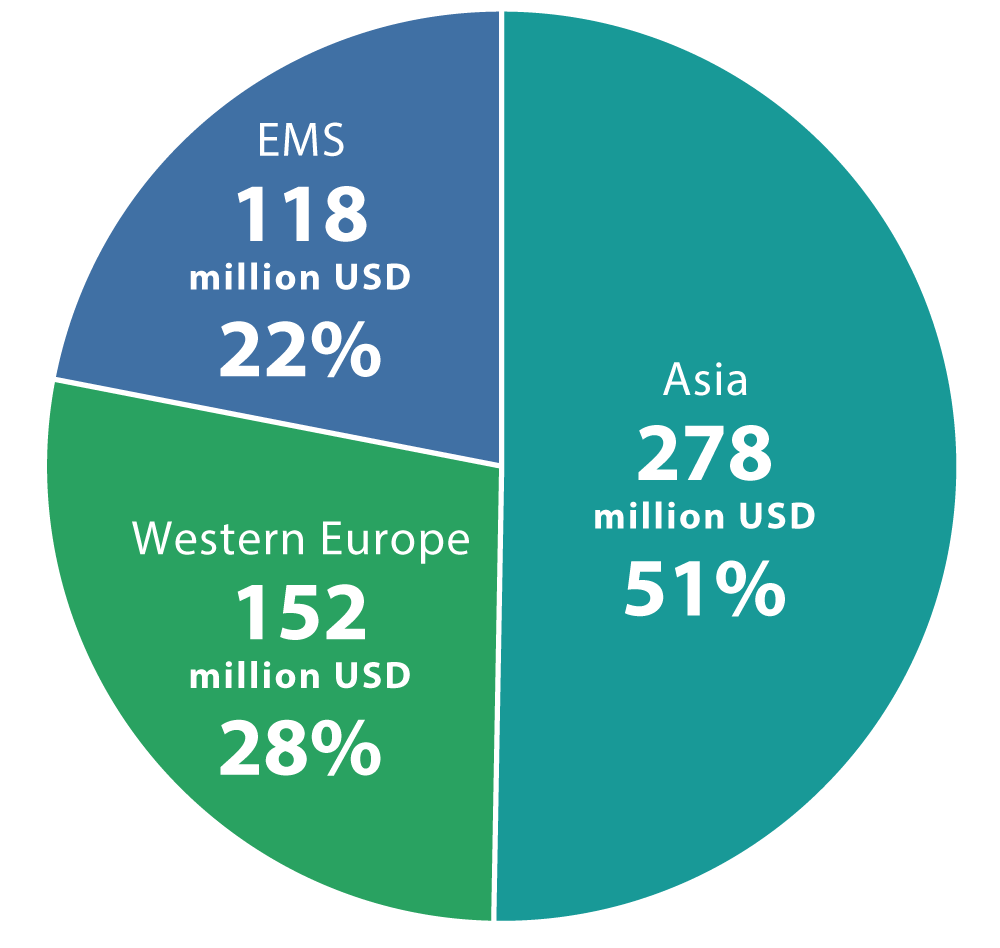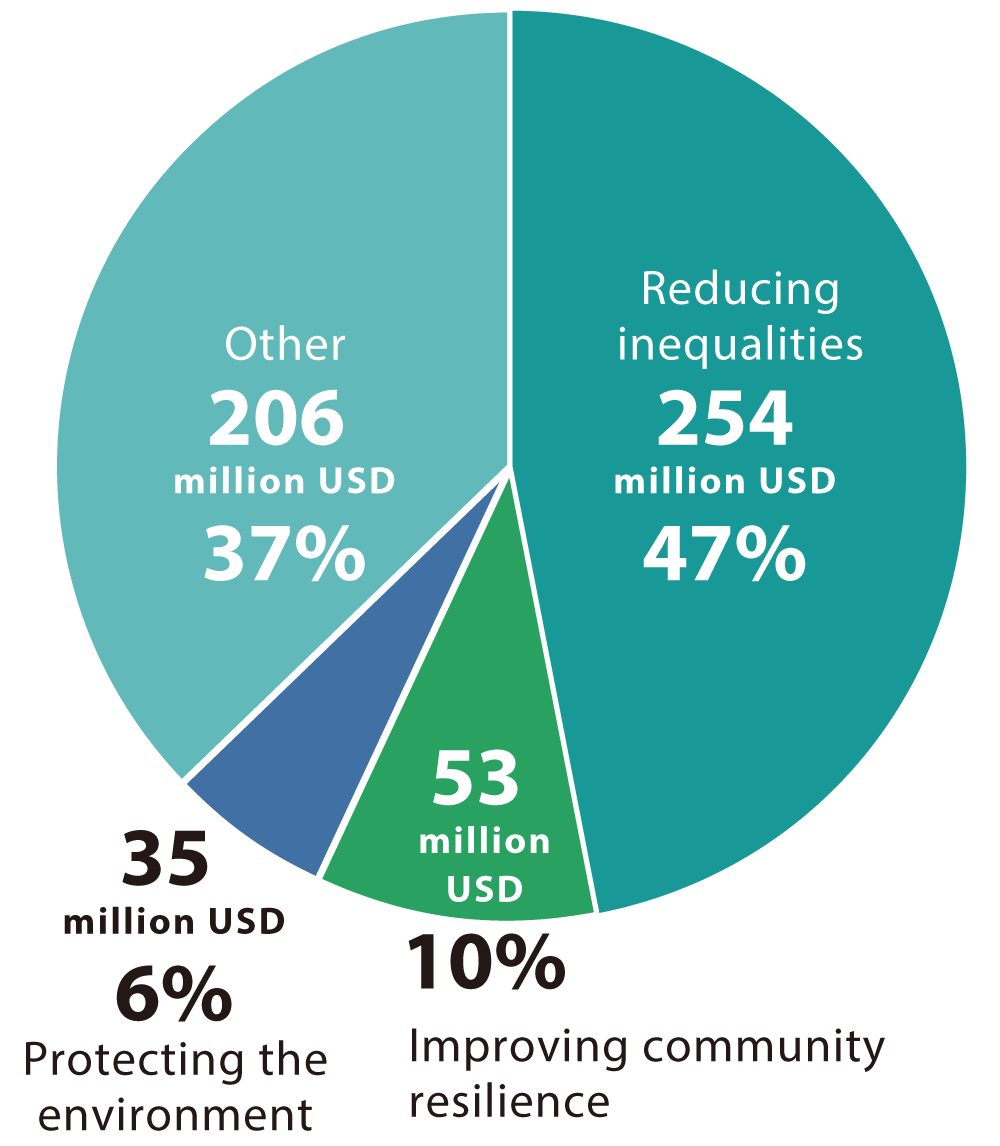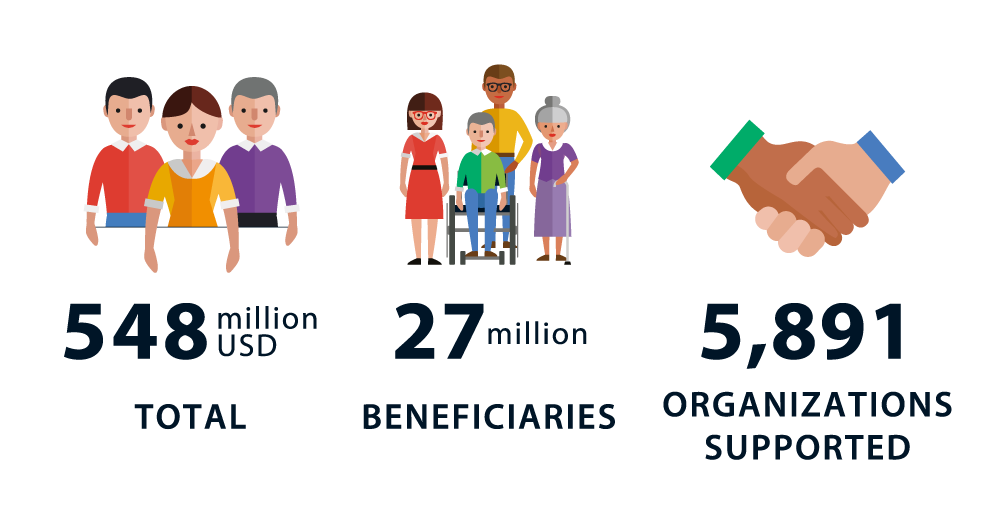Sustainability
initiatives
Living with the planet
The JT Group recognizes the importance of preserving a healthy relationship between nature, people and business through initiatives to improve our impact on the environment. Based on this recognition, we have reviewed our environmental initiatives, considering the potential impacts of climate and nature on our business, as well as the impact that our business could have on the global ecosystem. To mitigate our potential impacts on climate and nature, we have established targets related to “Living with the planet.”
Climate change
Roadmap to Net-Zero
One of our key focus areas is Greenhouse Gas (GHG) emissions reduction. We are working to be carbon neutral in our own operations by 2030 and to achieve Net-Zero GHG emissions across our entire value chain by 2050. In support of this, we have absolute emission reduction targets for 2030 and have established roadmaps as to how we will achieve those targets. We carry out annual reviews to ensure the feasibility and effectiveness of our strategy for achieving Net-Zero GHG emissions.
In 2024, we continued to increase the proportion of renewable energy that we use and are well on-track to achieve our 2030 renewable electricity target.
Climate scenario analysis
The JT Group conducted climate scenario analyses using multiple global warming scenarios (including 1.5°C and 4°C). For these analyses, we utilized scenarios based on typical concentration pathways outlined by the Intergovernmental Panel on Climate Change (IPCC), such as Representative Concentration Pathways (RCP2.6, RCP4.5, RCP8.5). As a result of the analyses, we identified two major climate-related risks to the JT Group: carbon pricing (increased carbon taxes) and changes in farming environments due to rising average temperatures.
External recognition: Science Based Targets (SBT)
Our GHG emissions reduction target for 2030 has been validated by the Science Based Targets initiative (SBTi), an international initiative on climate change, as 1.5°C aligned. We have applied for SBTi validation for our target to achieve Net-Zero GHG emissions across the entire value chain by 2050.

How the JT Group plans to achieve Net-Zero



External recognition: CDP
We were selected by the international environmental disclosure platform CDP for inclusion in its “A List” for the sixth consecutive year. The A List denotes companies with the highest evaluation for outstanding climate change initiatives. JT Group press release, February 2025
In July 2025, we were also recognized as “Supplier Engagement Leader 2024” in CDP’s Supplier Engagement Assessment for the sixth consecutive year.


Biodiversity
The JT Group’s business activities use raw materials from nature, such as tobacco leaf and other crops. Therefore, the sustainability of the natural environment is essential to the sustainability of our business activities. Moreover, as a leading global company, the JT Group has responsibilities to contribute to the preservation of the natural environment not only in its own operations, but also in its value chain.
Based on these considerations, one of our key targets is to conduct biodiversity impact assessments to evaluate the impact and dependency each of our businesses has on biodiversity. The assessment conducted by our tobacco business adopted a structured approach following the SBTN* methodology to better understand its relationship with nature to prioritize areas for intervention. The assessment conducted in 2024 comprised several key steps:
- Initial data collection on its value chain, markets and origins established a baseline for the assessment
- A sector-level materiality assessment provided an initial overview and interpretation of its potential impacts and dependencies on biodiversity
- A global biodiversity overview was performed as well as detailed impact and dependencies analysis for specific countries, including Brazil, Malawi, Zambia, Tanzania, Indonesia and Bangladesh
- Locations for intervention were prioritized across various spheres of influence, including direct operations, upstream value chain, adjacent areas, and systems
*
Science Based Targets Network
For its next steps, the tobacco business plans to develop location-specific action plans and extend the scope of detailed analysis. We believe these initiatives will have a positive impact not only on biodiversity, but also on other environmental issues such as climate change. We will proceed with the development of new strategies and targets aimed at “Living with the planet,” and accelerate these initiatives.
Protecting water
One of our key focus areas relates to protecting water, and we aim to contribute to the preservation of a sustainable water environment by monitoring the appropriate use of water resources and setting targets to prevent water pollution. Recognizing that water is a valuable shared resource, we have a target to acquire certification for eligible tobacco factories against the AWS* Standard, a key element of which is strengthening collaboration with other water-related stakeholders. In 2024, we further reduced our water consumption by increasing water recycling in Malawi, Türkiye, Russia and Japan, and improving processes in Germany, Ethiopia, the Philippines and Indonesia.
*
Alliance for Water Stewardship (AWS) is a global membership collaboration comprising businesses, NGOs and the public sector. Its members contribute to the sustainability of local water resources.
Value creation that exceeds consumer expectations
To remain a trusted corporation, it is essential for each business unit within the JT Group to provide value centered around “fulfilling moments” to our consumers. Under “Value creation that exceeds consumer expectations,” a pillar of our materiality, we have established five sustainability targets, aiming to actualize our Group’s desire to deliver value that exceeds expectations from a wide range of consumers and society, through our efforts to create innovative products and services. For details of the initiatives, please see the pages for each business.
▲
Please see Tobacco business, Pharmaceutical business, and Processed Food business for details.
Investing in our people and supporting their growth
Please see the detailed page below for more information on "Investing in our people and supporting their growth."
Responsible supply chain management
Respect for human rights
Respecting human rights is essential in conducting our business based on our management principle, the 4S model. We also believe that respecting human rights is fundamental to the JT Group Materiality, which is the core of our sustainability management.
We respect human rights across our value chain, and recognize the International Bill of Human Rights and the International Labour Organization’s Declaration on Fundamental Principles and Rights at Work. The JT Group Human Rights Policy follows the framework provided by the UN Guiding Principles on Business and Human Rights (UNGP).
A five-pillar approach
Our human rights approach is based on five pillars. This circular approach provides a systematic way of conducting ongoing due diligence and is in line with the UNGP, the Organisation for Economic Co-operation and Development (OECD) Guidelines for Multinational Enterprises, and the OECD-FAO (Food and Agriculture Organization) Guidance on Responsible Agricultural Supply Chains.

Grievance mechanisms
Our system for reporting concerns helps us ensure that we listen to and act on the grievances of those whose human rights might be impacted by our activities. Providing effective grievance mechanisms, we encourage employees and those who work for our business partners to speak up if they have concerns over the actual or potential violation of the JT Group Code of Conduct, including any human rights abuses.
Through the distribution of user guides and posters, we are working to increase awareness of our system for reporting concerns.
▲
Please see the JT website for more details.
Initiatives within our own operations
The five pillars outlined above are also the foundation of human rights due diligence conducted at our own sites.
▲
Please see the JT website for more details.
Our human rights due diligence
JT Group’s salient human rights issues
We use the concept of “prioritization” to address the most important human rights issues for the JT Group. We have identified nine salient issues related to our own operations and value chain.
To do this, we identified various issues that potentially have a negative impact on human rights through our activities or business relationships. We then prioritized them based on their respective severity and likelihood.
●Child labor ●Environmental impacts ●Fair wage ●Forced labor ●Harassment and gender impacts ●Health and safety ●Health risk ●Non-discrimination and equality ●Working hours
Human Rights Impact Assessments
Based on the concept of “prioritization,” we conduct assessments in countries where the greatest risks to people lie. We also review the classification of high-risk countries, considering changes in business and social environments.
Across the JT Group, as of the end of 2024, Human Rights Impact Assessments have been completed in 16 countries, and evaluations using self-assessment questionnaires have been conducted in 18 countries. Please see our website where we publish key findings, including human rights risks that have been identified, our actions and the progress we have made in each country.
Supplier engagement
Business partners are essential for the JT Group to conduct its business and achieve sustainable growth. With this in mind, we believe it is important to engage in dialogue with them to understand the progress in their human rights-related initiatives and difficulties they may face so that we can appropriately cooperate with them.
In view of the salient human rights issues outlined above, we recognize that the following supply chains are of particular importance, and we continue driving initiatives.
▲
Please see our tobacco leaf sourcing for details.
▲
Please see our RRP sourcing for details.
▲
Please see the JT website for more details on our processed food business’s supply chain.
Community investment
For our Group to grow sustainably, it is vital for us to contribute to the sustainable development of our society. We are working with a wide range of stakeholders to resolve social issues toward the development of inclusive and sustainable communities.
Achievement of community investment target within the JT Group Sustainability Targets
In 2019 we set the following target: “Between 2015 and 2030 we will invest 60.0 billion yen to help make communities inclusive and resilient.” Since then, we have been continuously investing in communities. As a result, our investments from 2015 to 2024 reached 65.5 billion yen, achieving the target six years ahead of schedule.
Investment results by geography
In Asia, which encompasses the main markets of the tobacco business—Japan, the Philippines, and Taiwan—we have invested 33.1 billion yen, approximately 50% of the total amount invested since 2015. In other areas, we are working through our local business sites to resolve social issues in every area where we have business operations around the world.

Investment results by area
The JT Group’s programs are designed to respond to global social issues and challenges inherent to each region. They are focused on three specific areas: 1. Reducing inequalities, 2. Improving community resilience in disaster-prone areas, and 3. Protecting the environment.
To reduce inequalities, we are working to improve access to food, water, sanitation, education, and culture and the arts for underprivileged people. Reducing inequalities accounts for approximately 47% of our investments since 2015.
In improving community resilience in disaster-prone areas, in addition to emergency support activities during disasters and medium-term recovery support activities, we are also promoting the creation of safe and sustainable regional communities by engaging in disaster risk mitigation activities during normal times.
In our efforts for protecting the environment, we are engaged in forest and biodiversity protection around the world, as well as environmental clean-up activities.

From 2015 to now, the JT Group has provided support for a total of 5,891 organizations and 26.51 million people all around the world. We will continue to evolve our initiatives to create even greater social impact toward the development of inclusive and sustainable communities.

Good governance
Corporate governance is the foundation for improving the satisfaction of various stakeholders and the JT Group to continue to be a trustworthy corporate entity. We believe it is the basis for all our activities. As part of our commitment to “Good governance,” one of our materiality, we have set “Internal control” as a sustainability target to ensure proper governance in each business, which is essential for sustained growth and enhancing corporate value.
▲
-
Please see Corporate governance for more details on the JT Group governance.


